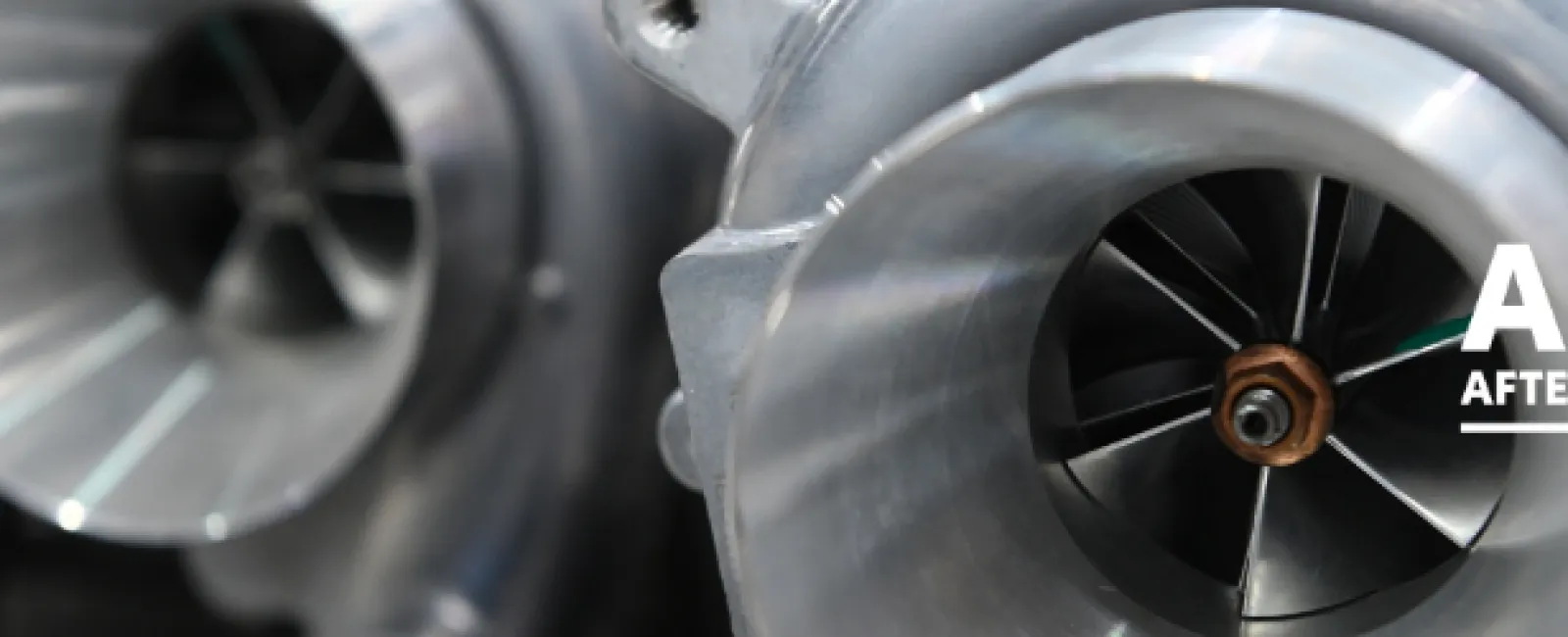Many of todays' engines utilize
turbochargers to provide a boost of power and/or increase efficiency. A turbo,
or turbine-driven forced induction device, functions by pushing extra air into
the cylinders of your engine for increased horsepower by burning the fuel more
efficiently.
While typically a long-lasting
and reliable component, there are several common turbo problems that can lead
to anything from diminished performance to destroying the engine.
Signs of a Bad Turbo
Paying close attention to how
your engine is operating and performing regular service and inspections is a
smart way to stay on top of engine maintenance and preventive care. Any
noticeable change in the engine performance or sound means that something has changed
and needs to be investigated. If you notice signs of a turbocharger problem,
such as oil leaks or a change in the sound…it's critical to get it checked out
as soon as possible. You should also be aware of the normal boost pressure the
engine operates at…and investigate any major change in pressure or the cause of
the Check Engine Light (CEL) or Malfunction Illumination Light (MIL).
Also keep an eye out for the
following indicators of common turbo problems:
- Reduced Acceleration: Since
the turbocharger is responsible for providing added power to your engine, one
of the easiest ways to recognize they are failing is when you notice a lack of
acceleration getting off the line as well as throughout the entire speed range.
- Increased Oil Burn: A bad
turbo tends to burn through (or leak) oil more rapidly. Keep track of how often
you need to add more oil and look out for leaks and signs of blockage and
deposits.
- Smoke: The smell and sight of
smoke coming from your exhaust pipe tells a story… When first starting your
engine, White smoke is unburned fuel- until the engine warms up and the turbo
is "up to speed" this is normal.
As the engine warms up, blue
smoke is never a good sign, blue smoke indicates engine oil is present (bad
rings, valve seals, or a major oil seal issue in the turbo).
Black smoke is unburned fuel
that is wasted…this happens when there isn't enough boost air to burn the fuel
completely- this could be a worn or defective turbo, or leaks or blockage in
the piping or intercooler/aftercooler.
- Excessive Noise: Unusual
noises coming from your engine are never good. But if you hear a loud whining
sound, it could be from reduced airflow or lubrication to the turbo unit.
Reasons for Common Turbocharger
Failures
Turbo problems are caused by a
variety of factors such as a lack of lubrication, oil contamination, usage
outside of standard specifications, and regular wear and tear. The following
are some common turbo problems and failures:
- Cracked housings and/or worn
seals allow air to escape and cause the turbocharger to work harder and wear
down quicker.
- A buildup of carbon deposits
and contaminants traveling through the system can damage inner engine
components.
- The presence of foreign
objects, such as dust or debris entering the turbine or compressor housing, can
cause damage to the compressor wheel or nozzle assembly. (Some turbos spin more
than 300,000 RPM…it doesn't take much at that speed to destroy a turbine or
compressor wheel.)
- Leaks in the air intake
system increase stress on the turbocharger as it works to compensate for the
lack of air.
- Blocked or partially blocked
diesel particulate filters prevent exhaust gas from flowing freely through the
system, causing a variety of problems. The turbo spins as a result of the
expanding hot air from combustion…when this air is restricted, the turbo cannot
obtain the optimum speed, therefore the power is low, and black smoke is
present…in extreme instances, the turbine (hot) side of the turbo can become
much hotter than designed for, and seals become brittle and fail, causing
everything from leaks to a possible run-away engine, which can overspeed and
destroy itself.
